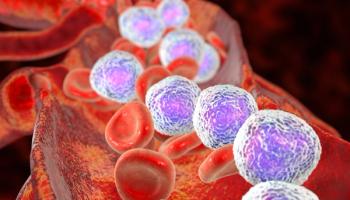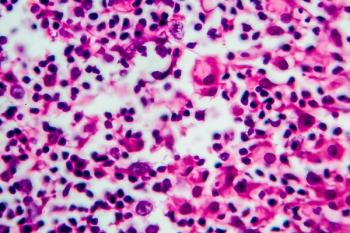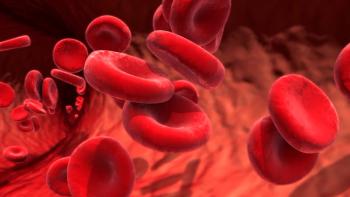
Immunoglobulin Abnormalities Do Not Affect Overall Survival in CLL, Study Finds
While immunoglobulin abnormalities appear to shorten treatment-free survival periods, they do not have an impact on overall survival in patients with chronic lymphocytic leukemia (CLL).
Patients with
The report,
A team of investigators, including corresponding author Luca Laurenti, MD, of Gemelli University Hospital, in Italy, noted that prior research has looked at the impact of hypogammaglobulinemia in patients with CLL. However, they said there is significant heterogeneity between cohorts, and much research has included both treated and untreated patients, making it difficult to examine the prognostic impact of such abnormalities.
In an effort to get a clearer picture of the impact, the investigators examined 1505 patients with CLL and split them into 4 cohorts based on the degree of Ig aberrations upon diagnosis. The vast majority (1083) had normal Ig levels, making up the largest of the 4 groups. The other 3 groups included 73 patients with IgM monoclonal gammopathy (IgM/CLL), 149 patients with IgG monoclonal gammopathy (IgG/CLL), and 200 patients with hypogammaglobulinemia (hypo-c).
“IgM paraprotein was significantly associated with a more advanced Binet/Rai stage and del(17p)/TP53 mutation, while IgG abnormalities correlated with a higher occurrence of trisomy 12,” the authors said.
Any type of Ig abnormality lowered a patient’s expected TFS, Laurenti and colleagues found, but there was not a corresponding statistically significant impact on OS.
The authors noted that hypogammaglobulinemia specifically has been linked in the past with higher infections and morbidity. Thus, Ig replacement therapy, which was not investigated in this study, is indicated by current guidelines for the management of patients with CLL.
“However, some studies suggest that hypogammaglobulinemia is not associated with a higher risk of death from infections, but rather with a shorter TFS and a higher risk of death from all causes, being primarily a marker of greater tumor burden and reflecting a more aggressive disease,” Laurenti and colleagues wrote.
This hypothesis is supported by the current study, they said.
More broadly, the authors said their 28% rate of Ig abnormalities fell somewhere in the middle of rates reported in existing research, which ranged from 7% to a high of 80%. The investigators also reported that the proportion of patients with each type of abnormality held generally steady across the 4 cancer centers in the study. However, the authors said the rates were somewhat of a surprise.
“Even though we did not perform any characterization of the heavy-chain isotype and considering that CLL cells express breakpoint cluster region proteins (BCRs) mostly of IgM and IgD isotypes, rather than the IgG class, IgM paraprotein was expected to be more frequent but instead the occurrence of IgG monoclonal component was even double than that of IgM,” the authors said.
In conclusion, the authors said while other factors such as IGHV status mutation, Binet/RAI stage, and del17p are known prognostic factors for OS, “Ig alteration does not have any impact on OS.”
Reference
Corbingi A, Innocenti I, Tomasso A, et al. Monoclonal gammopathy and serum immunoglobulin levels as prognostic factors in chronic lymphocytic leukaemia. Br J Haematol. Published online July 26, 2020. doi:10.1111/bjh.16975
Newsletter
Stay ahead of policy, cost, and value—subscribe to AJMC for expert insights at the intersection of clinical care and health economics.









